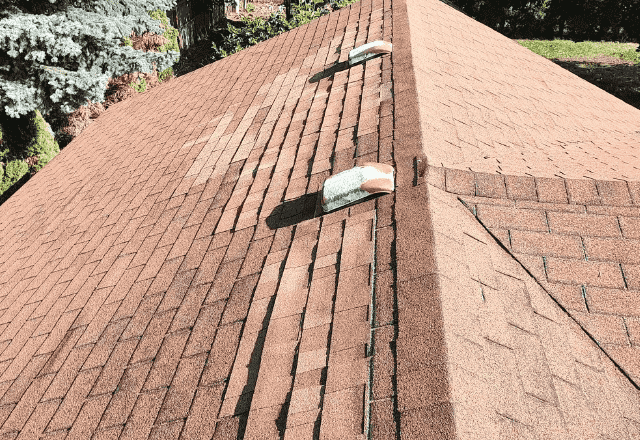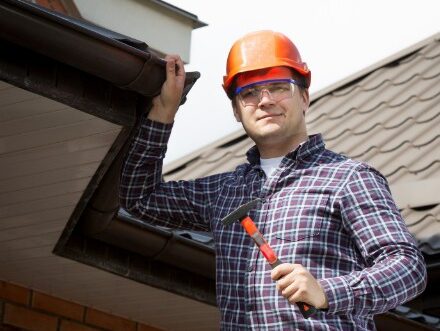If you’re a homeowner or building manager, you might be asking yourself, How long does a roof inspection take? Regular roof inspections are crucial for maintaining the integrity and longevity of your roof, but it’s essential to understand the time commitment involved. In this article, we’ll delve into the various factors that influence the duration of a roof inspection and provide you with a clear understanding of what to expect.
Factors Affecting Roof Inspection Duration
Several key factors can impact the length of a roof inspection:
1. Roof Size and Complexity
The size and complexity of your roof play a significant role in determining the inspection duration. A larger roof with multiple levels, dormers, and valleys will naturally take longer to inspect than a smaller, simpler roof. Here’s a rough guide to roof inspection times based on size:
Roof Size | Approximate Inspection Time |
Up to 1,500 sq. ft. | 30 minutes to 1 hour |
1,500 to 3,000 sq. ft. | 1 to 2 hours |
Over 3,000 sq. ft. | 2+ hours |
2. Roofing Material
The type of roofing material can also affect the inspection time. Some materials, like asphalt shingles, are easier to inspect, while others, such as tile or slate, may require more attention to detail. Here’s a breakdown of common roofing materials and their impact on inspection duration:
- Asphalt Shingles: Minimal impact on inspection time
- Metal Roofing: May require extra time to check for dents, rust, or loose fasteners
- Tile Roofing: Requires careful examination for cracks, chips, or slipped tiles
- Slate Roofing: Demands meticulous inspection due to potential for hidden damage
3. Roof Age and Condition
An older roof or one in poor condition will likely require a more thorough inspection to identify potential issues. Inspectors may need to spend extra time examining areas with visible wear, such as:
- Cracked or missing shingles
- Worn-out flashing
- Sagging or uneven roof planes
- Moss or algae growth
4. Accessibility and Safety
The accessibility and safety of your roof can also impact the inspection duration. If your roof is steep or has limited access points, the inspector may need to take additional precautions, which can extend the inspection time. Factors that can affect accessibility and safety include:
- Roof pitch
- Presence of skylights, chimneys, or solar panels
- Weather conditions (e.g., rain, snow, or high winds)
5. Purpose of the Inspection
The reason for the roof inspection can also influence its duration. A general maintenance inspection may be quicker than one conducted for leak detection or an insurance claim, which may require more extensive documentation and photographs.

Average Roof Inspection Duration
With the above factors in mind, a typical roof inspection can take anywhere from 30 minutes to 2 hours or more. However, it’s essential to remember that a thorough inspection is crucial for accurately assessing your roof’s condition. A reputable inspector will take the time necessary to examine all aspects of your roof and provide a detailed report of their findings.
The Roof Inspection Process
A professional roof inspection typically involves the following steps:
1. Exterior Inspection
The inspector will begin by examining the exterior of your roof, looking for signs of damage or wear on:
- Shingles or roofing materials
- Flashing around chimneys, vents, and valleys
- Gutters and downspouts
- Chimneys and skylights
2. Interior Inspection
Next, the inspector will move inside your home or building to check for signs of leaks or water damage, such as:
- Water stains on ceilings or walls
- Damp or sagging insulation in the attic
- Proper attic ventilation
3. Specialized Tools and Equipment
To conduct a comprehensive evaluation, inspectors may use specialized tools and equipment, such as:
- Moisture meters to detect hidden leaks
- Infrared cameras to identify areas of heat loss or moisture buildup
- Drones for hard-to-reach or dangerous areas
4. Professional Expertise
A skilled roof inspector will have the knowledge and experience to identify potential issues and provide recommendations for repairs or maintenance. They should be able to answer your questions and explain their findings in detail.

Benefits of Regular Roof Inspections
Investing in regular roof inspections offers numerous benefits:
- Early detection and prevention of potential issues
- Prolonging the lifespan of your roof
- Maintaining the value and safety of your property
- Saving money on costly repairs or premature roof replacement
- Peace of mind knowing your roof is in good condition
When to Schedule a Roof Inspection
We recommend scheduling a roof inspection:
- Every 1-2 years, depending on your roof’s age and material
- After severe weather events, such as hailstorms or hurricanes
- Before buying or selling a property
- As part of your regular home maintenance routine
Choosing a Professional Roof Inspector
When selecting a roof inspector, look for:
- Proper certifications and licenses
- Experience with your specific roofing material
- Positive reviews and references
- Detailed inspection reports and recommendations
Conclusion
So, how long does a roof inspection take? As we’ve seen, the answer can vary based on several factors, but a thorough inspection is essential for maintaining the health and longevity of your roof. By understanding the inspection process and the benefits of regular inspections, you can make informed decisions about your roof maintenance and protect your investment for years to come.




 509-201-4190
509-201-4190
